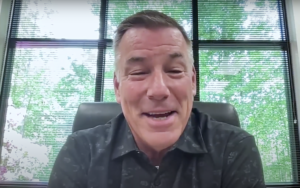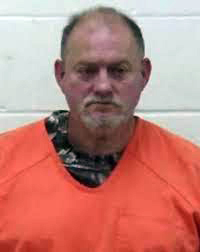
WASHINGTON (BP) — Sudan’s militant Islamic regime again is terrorizing its own people based on religion and ethnicity, driving about 280,000 people from their homes and producing another humanitarian crisis, according to a United States watchdog for religious liberty.
The U.S. Commission on International Religious Freedom (USCIRF) reported military and paramilitary forces controlled by the Khartoum government have targeted Sudanese in two southern states based on their religious belief, political affiliation and ethnicity. [Khartoum is the capital.] The result has been the internal displacement of about 230,000 people in Southern Kordofan, with many living in mountain caves, and the flight of another 50,000 from the two states to other countries.
USCIRF and members of Congress called on the Obama administration to lead an international effort to put an end to the attacks and to provide humanitarian assistance.
The only way to halt the Sudanese government’s actions is by strong international pressure, USCIRF Chairman Leonard Leo said at a news conference on Capitol Hill. “Unfortunately, the world has been silent, and that silence must end.”
USCIRF released an eight-page report in mid-December on the crisis in Sudan based on interviews staff members conducted in October with more than 80 refugees, including many at a refugee camp in the newly constituted Republic of South Sudan.
The Khartoum-backed attacks — which followed the intra-country pattern of the past in the south and in the Darfur region of the west — began in June in Southern Kordofan and in September in Blue Nile. They have included bombings as well as executions of Sudanese on a “blacklist,” USCIRF reported.
The targets in house-to-house searches typically were Christian leaders and perceived supporters of the Sudan People’s Liberation Movement, which opposed Khartoum during a 22-year civil war that ended in 2005. Others — such as residents of the Nuba Mountains, including moderate Muslims — were targeted because of their ethnicity, according to USCIRF. The military also destroyed church buildings and mosques.
Many pastors fled their homes for South Sudan after they learned troops were searching for them by name. As a result of the lack of pastors and the military attacks, the worship services of many churches have been disrupted in the Southern Kordofan and Blue Nile states.
A teacher from Southern Kordofan gave testimony to USCIRF staff of some atrocities he and his students witnessed. Describing the scene at an Episcopal Church of Sudan near his school, the teacher said, “There were Christians inside the church praying. [Sudanese Armed Forces] soldiers started shooting inside the church at the people. SAF soldiers went into the church and pulled out a Christian, captured him and shot him. As this was going on, I and my students were hiding behind the school, but could still see the SAF killing people with guns and knives.”
The Khartoum regime, led by longtime President Omar Hassan al-Bashir, has blocked food and medical aid from reaching the displaced.
In response to the crisis, USCIRF’s recommendations to the Obama administration included:
— that it lead in applying international pressure on Khartoum to permit unrestricted humanitarian assistance in both states.
— that it back an independent investigation of reported violations of the law and hold the guilty accountable.
— that it call on its allies to refuse economic aid and debt relief to Khartoum until it ends the attacks and allows humanitarian aid.
“The international community continues to watch as a cruel government in Khartoum terrorizes and murders its own people,” Rep. Chris Smith, R.-N.J., said at the news conference Dec. 14. “All of us must do more to end this blatant violation of human rights and ensure that the needs of those impacted by the violence are met with compassion.”
The Republic of South Sudan officially became an independent country in July, the result of an election that came after the 2005 peace agreement ending a north-south civil war based primarily on religion and ethnicity. During the civil war, it is estimated more than 2 million people in the south and central parts of Sudan died at the hands of the Khartoum-supported militia and some 4 million were displaced.
Many residents of Southern Kordofan and Blue Nile supported the rebel forces in their battle against Khartoum, but those states were not included in the new country.
Meanwhile, Darfur, the western region of Sudan, has been the scene of ongoing ethnic cleansing for the last eight years. Khartoum military forces and Arab militias supported by the government have committed widespread atrocities against African Muslims in Darfur. The genocide has resulted in the killing of an estimated 300,000 people as well as rampant torture, rape and kidnapping. Nearly 4 million people have fled their homes because of the attacks.
The U.S. State Department has designated Sudan as one of only eight “countries of particular concern,” a category reserved for the world’s worst violators of religious liberty.
USCIRF is a nine-member panel selected by the president and congressional leaders. It reports to the White House and Congress on religious freedom overseas. Richard Land, president of the Southern Baptist Ethics & Religious Liberty Commission, is a USCIRF commissioner.
–30–
Tom Strode is the Washington bureau chief for Baptist Press. Get Baptist Press headlines and breaking news on Twitter (@BaptisPress), Facebook (Facebook.com/BaptistPress) and in your email (baptistpress.com/SubscribeBP.asp).















